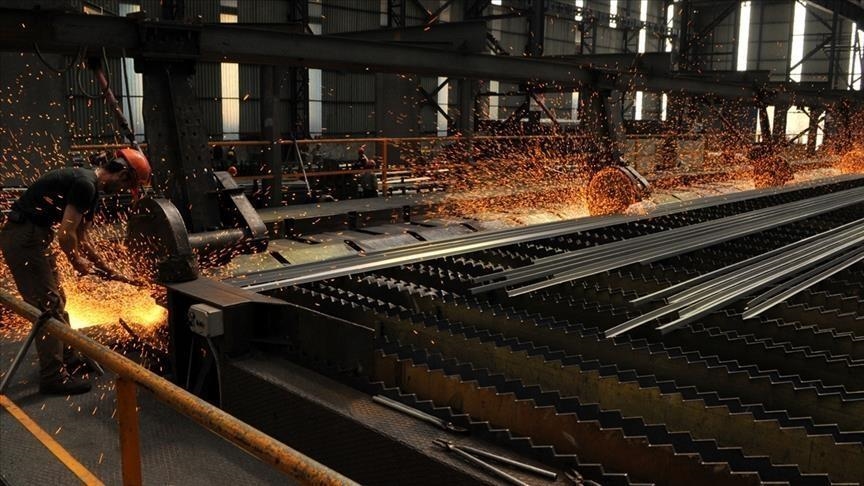ANKARA
Türkiye’s crude steel production rose by 0.7% year-on-year to 3 million tons in November 2024.
According to the Turkish Steel Producers’ Association on Thursday, production increased by 11.2% year-on-year to 33.9 million tons in the January-November 2024 period.
Consumption of finished products grew by 14.3% to 3.6 million tons in November 2024, but decreased by 0.3% to 35 million tons in the January-November 2024 period compared to the same period in 2023.
Foreign trade in steel products
In November 2024, steel product exports rose by 13.6% in quantity to 967,300 tons and by 15.4% in value to $709 million.
Exports increased by 29.1% in quantity to 12.1 million tons in the January-November 2024 period compared to the same period in 2023, and by 15.3% in value to $8.9 billion.
Imports grew by 46.6% in quantity to 1.8 million tons and by 19.9% in value to $1.2 billion compared to November 2023.
The increase in imports was driven by a 100% rise in semi-finished product imports and a 48% increase in long-product imports.
In the January-November 2024 period, imports decreased by 3% in quantity to 15.6 million tons and by 13% in value to $11.9 billion compared to the same period in 2023.
The ratio of exports to imports, which was 54.5% in the January-November period of the previous year, rose to 74.2% in the same period of 2024.
‘Losses will be compensated’
In his statement, Turkish Steel Producers’ Association Secretary General Veysel Yayan said that while the capacity utilization rate was 55.9% in the 11-month period of 2023, it reached 62.4% in the same period of 2024.
Stating that Türkiye ranked eighth among the world’s crude steel producers in the said period despite the low rate of production increases and that it was the second country after Vietnam that increased its production the most, Yayan added:
“The Turkish steel industry showed a strong recovery in export markets in 2024 despite the contraction in global steel demand. Thanks to domestic input procurement policies, there were positive developments in our exports.”
Yayan stated that because of the ongoing tension in the Red Sea, far-eastern producers had a difficult time reaching the European market and this led to Turkish producers partially meeting the demand of the European markets and in the increase of Turkish imports.
He noted: “In 2025, there is uncertainty about the impact of geopolitical developments in the Middle East and the stimulus policies announced in China on the country’s domestic demand and thus on global overcapacity.
“This year, we think that the sector will compensate for its losses in 2022 and 2023, the share of imports in domestic consumption will fall sharply, new opportunities will arise in exports, and our contribution to closing our country’s current account deficit will increase.”

